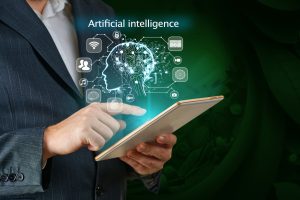New York, NY—As artificial intelligence (AI) continues to dominate technological innovation, a new frontier promising to outperform current generative AI (GenAI) models is emerging. While GenAI has captured public attention with its conversational prowess and creative output, its limitations often leave users grappling with inconsistent and unpredictable results. To address these shortcomings, researchers are turning to a specific AI architecture called the “transformer,” poised to unlock unprecedented data analysis and application opportunities.
What is a Transformer in AI? – Far removed from the fictional robots of Hollywood fame, the transformer in AI is an algorithmic model and deep-learning architecture that excels at understanding complex data structures. Transformers analyze data input sequences, learn their context, and identify relationships within and between data components. By doing so, they can produce highly accurate output sequences, enabling machines to grasp the intricate nuances of information in previously impossible ways. This approach contrasts with earlier AI models that relied heavily on recurrent or convolutional neural networks, which needed an improved ability to process sequential data over long distances. Transformers overcome these constraints by employing “attention,” which enables the model to focus on specific parts of the input data most relevant to the task.
While transformers already underpin many popular GenAI applications, such as OpenAI’s ChatGPT and Google’s Bard, their true potential lies in broader applications. Industries such as telecommunications, healthcare, finance, and manufacturing are exploring how transformer models can enhance operations and decision-making processes. For example, transformers can revolutionize network optimization in telecommunications by analyzing vast amounts of data from connected devices to predict usage patterns and prevent service disruptions. Similarly, in healthcare, they could enable precision medicine by interpreting genomic data to tailor treatments to individual patients. Transformers’ versatility also extends to areas like fraud detection in finance, where they can identify anomalous transactions with remarkable speed and accuracy, and supply chain management, where they can optimize logistics by forecasting demand and streamlining operations.
Challenges and Opportunities – Despite their immense promise, transformer models are not without challenges. They require significant computational power and large datasets to function effectively, which can be resource-intensive. Moreover, as transformers become more integrated into critical applications, concerns around data privacy, security, and ethical use will need to be addressed. Nevertheless, the investment in advancing transformer technology is accelerating. Companies and research institutions are racing to refine these models, expand their capabilities to surpass the current wave of GenAI tools, and create systems that offer consistent, high-value outcomes.
The Race to the Future – The development of transformers marks a pivotal moment in AI evolution, moving the field beyond GenAI’s limitations toward truly transformative solutions. As researchers and industries continue to explore their potential, transformers are set to redefine what is possible in artificial intelligence, paving the way for innovations that could fundamentally change how data is understood and applied across sectors.
Read more on AI advancements:




